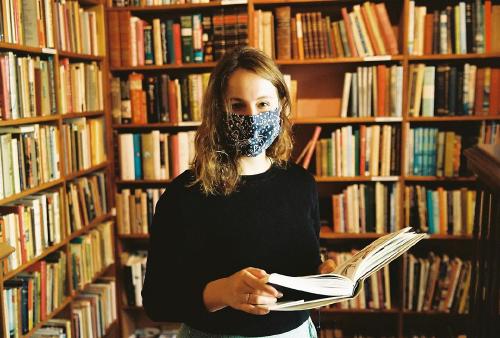
United Kingdom




2020-09-01
We’ve been on the coast of North Devon. Today the younger ones struck off from a larger group of trundling adults and children to get into the sea (we were standing on the headland and the water looked so calm and blue that Emma couldn’t think of anything other than finding somewhere to get into that sea).
We found a small rocky beach at the end of a crumbling single-track road. Emma and I went ahead in one car and wondered whether the others had lost their nerve on the way down. That was until we saw the others walking down the cliff path as we bobbed in the shallows. We swam out to the rocks and balanced on them, rising out of the water like miracles as we stood on ones that had already been covered by the waxing tide.
How the Pandemic Revealed Britain’s National Illness
2020-08-12
Britain, I was told, has found a way to be simultaneously overcentralized and weak at its center. The pandemic revealed the British state’s inability to manage the nation’s health: to create a funding model that does not solely promote efficiency, to rise above short-term problems and tackle the problem of old-age care, and to mend the broken system of accountability that runs through so much of British public life. Throughout the NHS’s existence, British governments, both Conservative and Labour, have found the political will to tinker with it, but rarely to tackle its long-term challenges, fearful of losing votes. The NHS did not fail, but the system overall did—and people died as a result.
— How the Pandemic Revealed Britain’s National Illness, Tom McTague in The Atlantic
How South Asian corner shop culture helped the UK survive Covid-19
2020-08-11
Sultan, Priyesh and Asiyah have symbiotic relationships with their local communities, but their accounts of running a corner shop are still prefaced by the institutional racism that runs through Britain’s history. In the 1970s and 1980s, South Asian factory workers in the UK began to lose their jobs after the decline of traditional labour-intensive industries.
The simultaneous expansion of supermarket chains postwar meant that provincial grocery stores were likely to close, unless they were part of groups like Spar or Londis. Members from these conglomerates purchased smaller village stores from wholesalers. More often than not, your local corner shop will be headed by a Londis brand as opposed to being independently-owned.
— How South Asian corner shop culture helped the UK survive Covid-19, Sana Noor Haq in Gal-Dem


